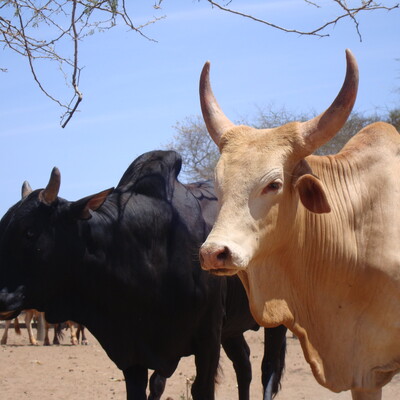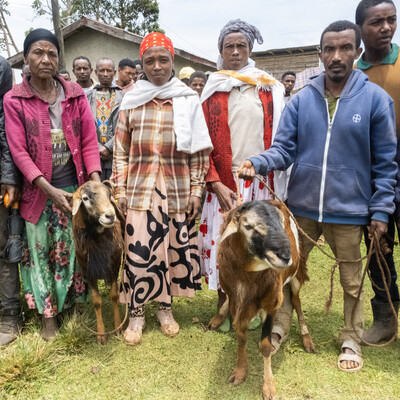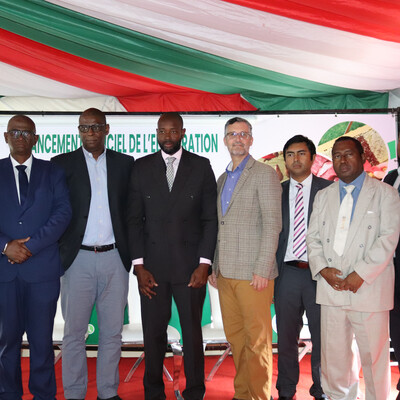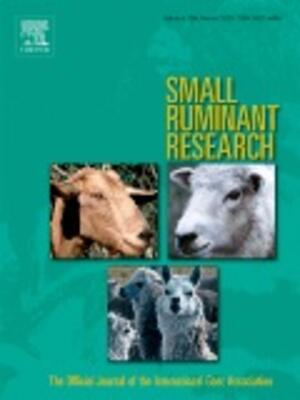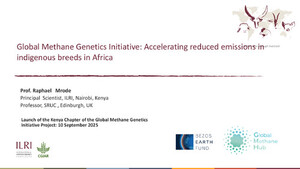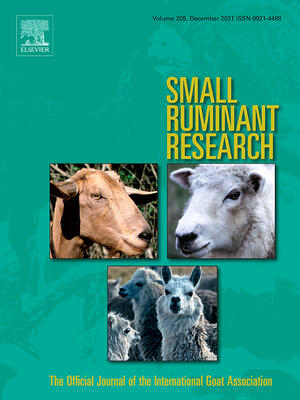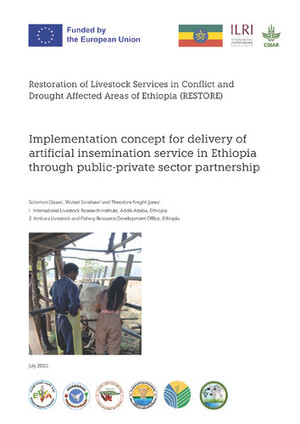
Art and science bring poultry genetics to life in Ethiopia while celebrating local diversity in all its forms

The new facility, lit up at night, on ILRI’s campus in Addis Ababa, Ethiopia
(photo credit: ILRI/Koen Vanmechelen).
Art and science unite to serve Ethiopian farmers—
‘Incubated Worlds’ explores genetic diversity
of poultry to boost nutrition and incomes
Ethiopia joins forces with the International Livestock Research Institute through state-of-the-art poultry breeding facility, together with Belgian artist Koen Vanmechelen, whose unusual Cosmopolitan Chicken combines the genetic traits of birds from 22 countries.
Scientists and government officials, who are committed to developing healthy, productive chickens for Ethiopian farmers and consumers, joined forces today with an artist dedicated to developing biocultural diversity, to launch ‘Incubated Worlds’, a unique combination of art and science that aims to improve nutrition and incomes in East Africa with disease-resistant, climate-resilient poultry.
Enhancing Africa’s rich genetic diversity with 20 generations of chicken breeds from around the world
Incubated Worlds is first and foremost an advanced poultry research and breeding facility that emerged from the African Chicken Genetic Gains (ACGG) project, an initiative that is tapping the rich genetic diversity found in poultry to provide more opportunities for rural poultry producers—the majority of whom are women—to earn a decent living and raise healthy, well-nourished families. Partners in Ethiopia include the Ethiopian Institute of Agricultural Research (EIAR), Ethiopia’s Haramaya University, and the International Livestock Research Institute (ILRI), the latter of which is part of the CGIAR global research partnership.
Adding a new dimension to the project is Belgian artist Koen Vanmechelen. His 20-year-long artistic odyssey has involved creating some 20 generations of chickens that combine traits from breeds from around the world, including several from across Europe and the Americas, in addition to indigenous chickens from China, Egypt, Senegal, Indonesia and Cuba. Vanmechelen’s artistic crossbreeding project has culminated in an exceptional bird he calls the Cosmopolitan Chicken, which livestock experts say is also a potential treasure trove of valuable genetic traits.
‘We wanted to combine Ethiopia’s new poultry research facility with Vanmechelen’s fascinating art installation because he conveys the importance of the genetic diversity in livestock in ways that science alone simply cannot’, said ILRI Director General Jimmy Smith. ‘By undertaking this work, we aim to develop productive, resilient poultry for a part of the world where demand for livestock products is rising rapidly and climate change is undermining agricultural productivity.’

Artwork by Koen Vanmechelen adorns the new art + poultry facility on ILRI’s Addis Ababa campus (photo credit: ILRI/Koen Vanmechelen).
Debuting the world’s ‘most intriguing’ poultry facility, rich in culture and science
The opening of Incubated Worlds will feature an address by ILRI Director General Smith, in addition to remarks from senior Ethiopian government officials and the artist Vanmechelen.
The art installation component of Incubated Worlds includes photographs, videos and books that provide insights into the complex genetics of both Vanmechelen’s many generations of poultry and an indigenous Ethiopian village chicken. The genomes of both birds have been sequenced by scientists to study their wide variety of genetic traits. The scientists and artist say they want to give the public a greater appreciation of the importance of genetic diversity to the economy and well-being of the country.

Belgian artist Koen Vanmechelen stands before the quote and signage he developed
(photo credit: ILRI/Koen Vanmechelen).
This is going to be the most intriguing poultry facility in the world.
I see it as a place where people can immediately understand that this very global farm animal—one found in almost every country in the world and acceptable as food in every religion—is the product of many, many local communities.
And if we don’t maintain and value this cosmopolitan heritage, then we could lose it.
—Koen Vanmechelen
Vanmechelen’s Cosmopolitan Chicken installations have been featured in major exhibitions in galleries from New York to London. As part of the Incubated Worlds facility in Addis, Vanmechelen has installed large chicken portraits representing the diversity and heritage of his Cosmopolitan Chicken. Just inside the entrance, visitors will find two of Vanmechelen’s Book of Genomes. They include the genetic code, produced both in English and transcribed into Ethiopia’s Amharic language, of the first Ethiopian chicken to have its genome sequenced and the DNA code of the 20th generation of the Cosmopolitan Chicken. The book displays are enhanced by two accompanying video installations at the facility depicting a multitude of people reading the Ethiopian chicken’s genetic code in Amharic and that of the Cosmopolitan Chicken in a variety of other languages.

Chickens in the new facility (photo credit: Camille Hanotte).
Breeding the Ethiopian African Planetary Community Chicken
In preparation for the Incubated Worlds installation, ILRI livestock geneticists Tadelle Dessie and Olivier Hanotte worked with the EIAR to import and hatch several of Vanmechelen’s Cosmopolitan Chickens. These chickens will be crossed with indigenous breeds of chickens preferred by farmers in Ethiopia to create what Vanmechelen and his scientist partners are calling the Ethiopian African Planetary Community Chicken. Crossbreeding enriches the diversity of the local flock, helping strengthen poultry resilience and local food systems. This approach seeks to broaden, replenish and conserve the genetic base of Ethiopian chickens.
‘What we ultimately want through Incubated Worlds are chickens that have the genetic diversity they need both to survive devastating poultry diseases and to adapt to a changing climate all while still producing a lot of food for farmers’, Dessie said.
‘Every generation of his chickens seems to be healthier than the last, but they haven’t been selected for productivity’, Hanotte said. ‘Our challenge is now to incorporate this diversity in a chicken for Ethiopians that is also very productive.’

The Book of Genome and a video capture in the new facility (photo credit: ILRI/Koen Vanmechelen).
Growing incomes and improving nutrition in Ethiopia
While ILRI hopes Incubated Worlds makes the subject of livestock diversity engaging and stimulating, the Ethiopian facility is also a response to food insecurity in the region. With new research demonstrating that just one egg a day can prevent stunting and enhance the brain development of young children, the poultry facility is a great opportunity to improve nutrition in Ethiopia. The work of this facility will support Ethiopia’s ongoing fight to prevent childhood stunting, which has already been reduced by a third since 2010.
Meanwhile, in Ethiopia, Africa’s second most populous state with one of the region’s largest livestock sector, demand for milk, meat and eggs—for domestic consumption and export—is rising rapidly.
Part of the work at Incubated Worlds will involve bringing in farmer associations to study more efficient breeding practices and to learn about the latest improvements in feeding and raising chickens to help them develop and grow viable poultry businesses.
‘Of all livestock, poultry production can be scaled up to meet household nutritional needs far more affordably and sustainably than other types of farm animals’, said ILRI’s Smith. ‘We want our poultry work in Ethiopia to serve as a model for how livestock can be a source of economic growth and prosperity and a way to improve household incomes and nutrition that can be particularly beneficial for women farmers, who typically invest their earnings from poultry in feeding their families and educating their children.’

Chicks in the new facility (photo credit: Camille Hanotte).
More information
ILRI: Meron Mulatu, communications and publishing officer
E-mail: m.mulatu [at] cgiar.org +251 116 172472 (landline); +251 912114195 (mobile)
Mouth/Koen Vanmechelen: Petra Remans, community manager
E-mail: petra@koenvanmechelen.be +32468311223 (mobile)
About the artist Koen Vanmechelen & the MOUTH Foundation
Belgian artist Koen Vanmechelen (b. 1965) is an internationally acclaimed conceptual artist. His work explores the importance of biocultural diversity, identity and community. His wide-ranging creative practice marries exceptional artistry, technological experimentation and scientific research. He is best known for his ongoing Cosmopolitan Chicken Project (CCP), which he first launched in 1999 to explore cultural and biological diversity. A crossbreeding program—through which the artist breeds chickens from around the world—CCP fosters a dialogue on national identity and the interdependence of different cultures, species and the environment. The artist’s scientific collaborations around the project have earned him numerous awards, including the Golden Nica Hybrid Art award in 2013. From spring 2018, his headquarters are at Labiomista—meaning, literally, “mix of life”—a former public zoo in the city of Genk that Vanmechelen is transforming into a living laboratory where culture, nature and humanity can find a new, more sustainable balance. MOUTH is a not-for-profit organization that supports the implementation of Vanmechelen’s all-encompassing art projects by bringing together art, science and people. koenvanmechelen.com, mouth.be
CGIAR is a global research partnership for a food-secure future. CGIAR science is dedicated to reducing poverty, enhancing food and nutrition security and improving natural resources and ecosystem services. Its research is carried out by 15 CGIAR centres in close collaboration with hundreds of partners, including national and regional research institutes, civil society organizations, academia, development organizations and the private sector. cgiar.org
A CGIAR research centre, the International Livestock Research Institute (ILRI) works with partners worldwide to enhance the roles that livestock play in food security and poverty alleviation, principally in Africa and Asia. ILRI’s mission is to improve food and nutritional security and to reduce poverty in developing countries through research for efficient, safe and sustainable use of livestock—ensuring better lives through livestock. Ilri.org
Incubated Worlds is an advanced poultry research project, breeding facility and art installation in Ethiopia funded by the Biotechnology and Biological Sciences Research Council (BBSRC); the Roslin Institute, part of the Royal (Dick) School of Veterinary Studies of the University of Edinburgh; and the MOUTH Foundation, which seeks to harness diversity to promote new types of unity and harmony. It emerged from the Bill & Melinda Gates Foundation-funded African Chicken Genetic Gains (ACGG) project, an Africa-wide initiative led by the International Livestock Research Institute (ILRI). Work at the ILRI poultry facility will be closely connected to the poultry genomics program jointly administered by ILRI, Scotland’s Rural College and the University of Edinburgh in their collaborative Centre for Tropical Livestock Genetics and Health.






